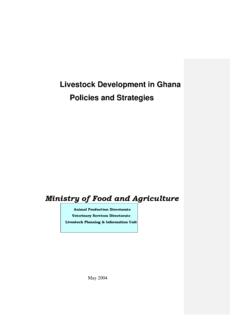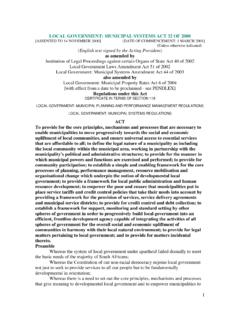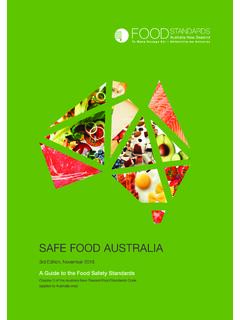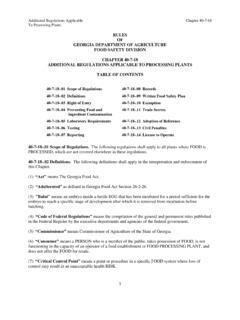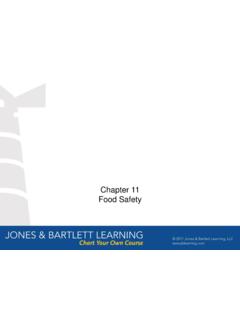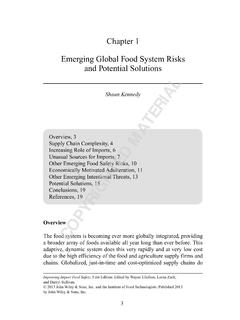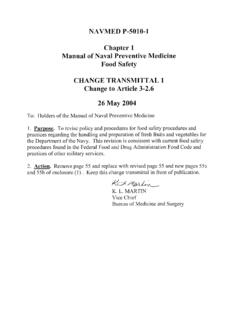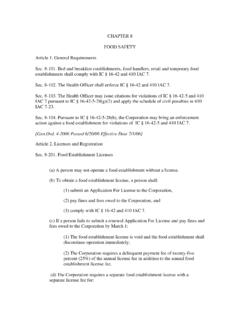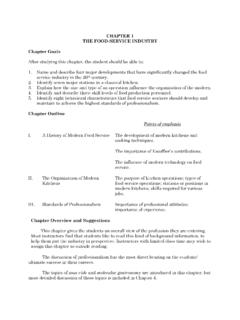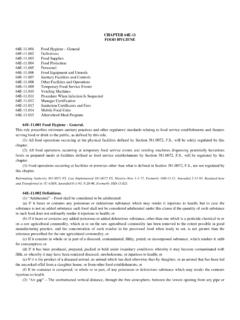Transcription of National Policy on Food Safety and Its Implementation Strategy
1 National Policy on food Safety and Its Implementation Strategy Produced By Federal Ministry Of Health, Abuja, NIGERIA 2014 1 TABLE OF CONTENTS TABLE OF CONTENTS .. 1 ABBREVIATIONS/ACRONYMS .. 3 6 PREFACE ..8 ACKNOWLEDGEMENT .. 9 chapter 1: Policy FRAMEWORK .. 10 BACKGROUND .. 10 EXISTING REGULATORY FRAMEWORK AND MANDATE .. 12 RATIONALE AND SCOPE .. 26 RATIONALE .. 26 JUSTIFICATION .. 26 SCOPE .. 27 chapter 2: INSTITUTIONAL ARRANGEMENT .. 28 National food Safety SYSTEM .. 28 INTER MINISTERIAL COMMITTEE ON food Safety .. 29 THE FUNCTIONS SHALL BE: .. 29 THE COMPOSITION OF THE COMMITTEE SHALL BE THE HONOURABLE MINISTERS IN CHARGE OF:.. 30 National food Safety MANAGEMENT COMMITTEE .. 30 THE FUNCTIONS SHALL BE: .. 30 THE COMPOSITION OF THE COMMITTEE SHALL BE: .. 31 NFSMC TECHNICAL COMMITTEES .. 32 INTERNATIONAL AGREEMENTS COORDINATING COMMITTEES (CAC, OIE, IPPC & SPS).
2 33 MULTI-SECTORIAL food Safety REGULATORY AGENCIES .. 33 chapter 3: Implementation STRATEGIES .. 34 GOAL 1: TO MODERNISE THE NIGERIAN food Safety REGULATORY FRAMEWORK IN LINE WITH INTERNATIONAL BEST PRACTICES.. 34 OBJECTIVE ) Update laws, standards, regulation and codes of practice in line with international standards.. 34 OBJECTIVE ) Update the regulatory system at the state and local government levels to align with the federal system.. 35 2 GOAL 2: MINIMISE THE INCIDENCE OF RISKS ASSOCIATED WITH PHYSICAL, CHEMICAL AND BIOLOGICAL HAZARDS IN FOODS AND WATER.. 35 OBJECTIVE ) Identify high risk food and water borne disease sources.. 35 OBJECTIVE ) Establish a mechanism to prevent food and water borne hazards.. 36 OBJECTIVE ) Enhance food borne illnesses surveillance and response.. 37 OBJECTIVE ) Improve inspections, compliance and enforcement systems.
3 38 GOAL 3: STRENGTHEN INSTITUTIONAL CAPACITY FOR food Safety .. 39 OBJECTIVE ) Develop Human Capacity in food Safety system along the food supply chain..39 OBJECTIVE ) Provide suitable infrastructure for monitoring and evaluation of the food Safety System.. 40 OBJECTIVE ) Provide sustainable and adequate funding for food Safety Programmes..41 GOAL 4: ESTABLISH AN EFFECTIVE INFORMATION AND COMMUNICATION MECHANISM FOR THE food Safety SYSTEM.. 41 OBJECTIVE ) Promote the attitude of communication, cooperation, transparency and effective 41 OBJECTIVE ) Create public awareness on food Safety practices, its effect on public health and National economy.. 43 TARGETS .. 44 chapter 4: MONITORING AND EVALUATION .. 45 46 3 ABBREVIATIONS/ACRONYMS AFAN All Farmers Association of Nigeria AFBTE Association of food Beverage & Tobacco Employers AfDB African Development Bank AFFCON Association of Fast food Confectioners of Nigeria AFVN Association of food Vendors in Nigeria ANCOPS All Nigeria Confederation of Principals of Secondary Schools BOA Bank of Agriculture BOI Bank of Industry CAC Codex Alimentarius Commission CBOs Community Based Organisations CDC Centre for Disease Control CPC Consumer Protection Council CSOs Civil Society Organisations DNA Deoxyribonucleic Acid DFID Department for International Development ECOWAS Economic Community of West African States EHO Environmental Health Officers EHORECON Environmental Health Officers Registration Council of Nigeria EU European Union FBD food -borne Disease FCT Federal Capital
4 Territory FDA Federal Department of Agriculture FDF Federal Department of Fisheries FDL Federal Department of Livestock FEC Federal Executive Council FMARD Federal Ministry of Agriculture and Rural Development FMEnv Federal Ministry of Environment FMITI Federal Ministry of Industry, Trade and Investment FMOE Federal Ministry of Education FMOH Federal Ministry of Health FMST Federal Ministry of Science and Technology FMWASD Federal Ministry of Women Affairs and Social Development GAP Good Agricultural Practices GEP Good Environment Practices GHP Good Hygienic Practices GMF Genetically Modified food GMO Genetically Modified Organisms GMP Good Manufacturing Practices GSP Good Storage Practices HACCP Hazard Analysis and Critical Control Point HMH Honourable Minister of Health ICCON Institute of Chattered Chemist of Nigeria IDB Islamic Development Banks 4 IDSR Integrated Disease Surveillance Response IEC Information Education and Communication IMNFSC Inter-Ministerial National food Safety Committee IPAN Institute of Public Analysts of Nigerian IPPC International Plant Protection Convention ISO International
5 Organisation for Standardisation LGA Local Government Authority LGAC Local Government Area Council LGAs Local Government Areas MAN Manufacturers Association of Nigeria MDAs Ministries, Departments and Agencies MLSCN Medical Laboratory Science Council of Nigeria MSMEs Micro, Small and Medium Enterprises NABDA National Biotechnology Development Agency NACCIMA National Association of Chambers of Commerce, Industry, Mines and Agriculture NAFDAC National Agency for food and Drug Administration and Control NASME Nigeria Association of Small & Medium Enterprises NASC National Agricultural Seeds Council NASS National Assembly NASSI National Association of Small Scale Industrialist NAQS Nigeria Agricultural Quarantine Services NBS National Bureau of Statistics NBTE National Board of Technical Education NCCE National Commission for Colleges of Education NCFN National Committee for food and Nutrition NCH National Council of Health NCS Nigeria Customs Service NDE National Directorate of Employment NEPC National Export Promotion Council NESREA National Environmental Standards and Regulations Enforcement Agency NFSMC National food Safety Management Committee NFSS National food Safety System NGOs Non-Governmental Organisations NHMIS National Health Management
6 Information System NIFST Nigerian Institute of food Science and Technology NIMR Nigerian Institute of Medical Research NIPC Nigeria Investment Promotion Commission NLC Nigeria Labour Congress NOA National Orientation Agency NOTAP National Office for Technology Acquisition and Promotion NPC National Planning Commission NPF Nigeria Police Force NPFSIS National Policy on food Safety and Implementation Strategy NPHCDA National Primary Health Care Development Agency NTI Nigeria Teachers Institute NUC National Universities Commission 5 NUT Nigeria Union of Teachers OIE Office International des Epizooties (World Organisation for Animal Health) OPS Organised Private Sector QA Quality Assurance SMOH State Ministries of Health SEMs Small and Medium Enterprises SMEDAN Small and Medium Enterprises Development Agency of Nigeria SON Standards Organisation of Nigeria SOP Standard Operating Procedure SPS Sanitary and Phyto-Sanitary STDF Standards and Trade Development Fund SUBEB State Universal Educational Board USAID United States Agency for International Development UNIDO United Nations Industrial Development Organisation VCN Veterinary Council of Nigeria WB World Bank WHO World Health Organisation WTO World Trade Organisation 6 FOREWORD Globalisation and its impact on food Safety has become a dominant factor in governance due to its effects on public health, agriculture, trade and investment, poverty, hunger and tourism.
7 food -borne illness is a global phenomenon affecting billions of people who suffer from diseases caused by contaminated and poorly cultivated, handled, processed or prepared foods along the supply chain. It also reduces economic activity and increases National poverty. In Nigeria, the food supply chain (Farm-to-Table) is undergoing considerable transformation as Government intensifies its efforts to improve Safety by reviewing and updating key components of the National food Safety control system. Similarly the agriculture and food industries are stepping up their food Safety practices but the overall food Safety situation is far from satisfactory. In 2010, as part of technical assistance from its development partners, the Federal Ministry of Health (FMOH) conducted an assessment of Nigeria food Safety system and a survey of the status of the industry.
8 Both studies revealed an outdated food Safety System and an industry willing to work with the government to improve it. The key challenges facing the enhancement of food Safety in the country include: lack of awareness of the socio-economic importance of food Safety , paucity of data and information on incidence of food -borne disease outbreaks, lack of understanding of food Safety and quality standards as outlined in international agreements, inability to enforce compliance with international standards and global best practices, inadequate infrastructure and resources to support scientific risk analysis1 and upgrading of food Safety regulatory systems, inefficient food supply chain and poor traceability system. There is therefore an urgent need to strengthen the existing food Safety System at each enterprise level at the Federal, State and LGAs platforms to develop a safe and reliable food supply chain from Farm-to-Table.
9 It is in this regard that National Council of Health at its 40th meeting in November, 1995 directed that a National Policy on food Safety be put in place. The Policy was formulated and finally approved by the National Council on Health at its 44th meeting in 1999 at Uyo. The Implementation of the National Policy on food Hygiene and Safety met with considerable challenges because its plan of action was not developed and wider 1 The Codex Alimentarius Commission defines risk analysis as a process composed of three components: risk assessment, risk management and risk communication 7 stakeholders were not consulted during its development. I hope that the Implementation of this revised National Policy on food Safety and Implementation Strategy (NPFSIS) will engender the adoption of International best practices in the food sector thereby enhancing consumer protection against fraudulent practices and supply of unwholesome and sub-standard foods.
10 This Policy will focus on building the capacity of both the public and private sectors, to strengthen the activities of the food Safety Control Agencies, taking into account recent developments at National and international levels. This will also lead to strengthening of the current National food Safety Management Committee (NFSMC), meet the specific needs of Agriculture, food industries especially those of the food service establishments and Micro, Small and Medium Enterprises (MSMEs) which are emerging as a significant portion of the industry. The Government will develop and implement mechanisms for training relevant stakeholders in the skills, tools and techniques for effective management of food Safety at every point of the Farm-to-Table continuum. In addition to the key considerations of protecting human health, agricultural resources and ecology, the new global environment for trade in food and agricultural products requires countries to base their control systems on international standards and risk-based measures.


